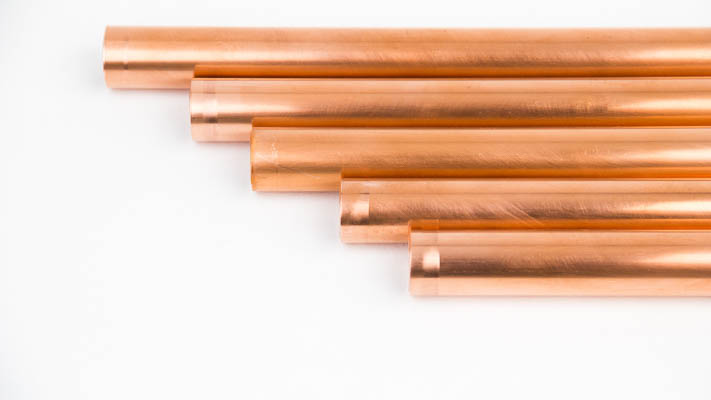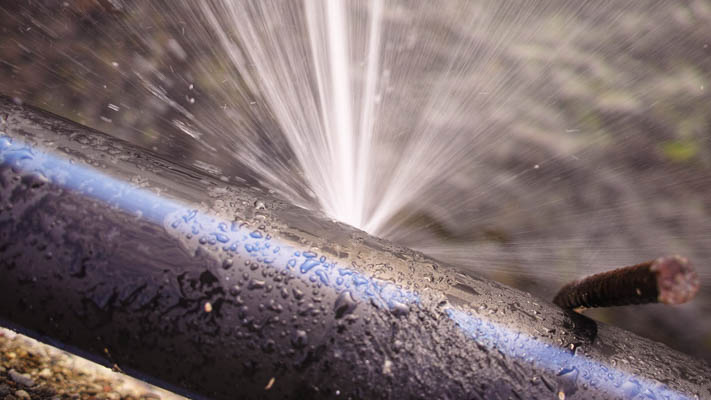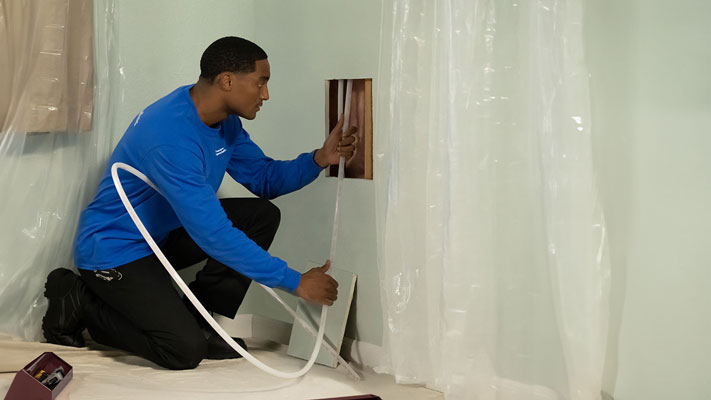Should I Repipe My House with Copper Piping or PEX Tubing?
Copper piping and PEX tubing are both popular and widely accepted materials for any home repipe.
At Repipe Specialists, we use both copper piping and PEX tubing for our home repipes. Additionally, we provide lifetime warranties on all our copper and PEX repipes.
Copper and PEX have different features. These features give each material its own benefits and drawbacks for repiping your house.
In the following sections, we will explore these materials' pros and cons to help you make an informed decision.
The Pros and Cons of Copper Piping
The Pros of Copper Piping
Copper piping has long been a trusted choice for plumbing systems, and for good reason.
Copper piping is renowned for its durability, making it an excellent long-term investment. With an average lifespan of 50 years or more, copper pipes are known for their excellent longevity. This means fewer leaks and repairs, providing homeowners with peace of mind and potentially saving them money in the long run.

Copper pipes are known for their sturdiness and reliability. They can withstand high water pressures and extreme temperature fluctuations without compromising their structural integrity.
The Cons of Copper Piping
A significant drawback of copper piping is its higher upfront cost compared to PEX.
The installation process for copper piping is labor-intensive, as every connection and joint needs soldering. This demands additional safety precautions due to fire risks, requiring larger holes for accessing connections.
The installation of copper pipes is more time-consuming than PEX, leading to higher installation costs and prolonged project timelines. The project's size and complexity will also affect these factors.
While copper pipes resist corrosion generally, they can still succumb to certain water chemicals. Acidic or alkaline water with high mineral content can both gradually corrode copper pipes over time.
For example, Florida's drinking water is considered very hard water; with significant levels of calcium, iron, and magnesium. This high mineral content can contribute to increased corrosion in copper piping and eventually lead to pinhole leaks. For more information, we have a thorough article on the causes of copper pinhole leaks.

This susceptibility to corrosion can significantly shorten the lifespan of copper piping, whereas this is much less of an issue for PEX tubing.
The Pros and Cons of PEX Tubing
The Pros of PEX Tubing
PEX tubing has gained significant popularity in recent years due to its cost-effectiveness, durability, flexibility, and longevity. We have a detailed article on the benefits of repiping with PEX tubing.
Compared to copper piping, PEX tubing and fittings are generally more affordable to purchase and install, making it an attractive option for homeowners on a budget.
PEX is highly flexible, allowing for easy installation around corners, through walls and attics, and through existing structures. Due to its flexibility, PEX can be installed directly from the central manifold to all outlets, requiring minimal connections and less wall patching than copper. This ease of installation can keep labor costs lower, while saving both time and money during the repiping process.

PEX tubing typically has a lifespan of 50 years or more, depending on factors such as water quality and usage. It is also highly resistant to corrosion, pitting, and scaling. In certain water conditions, copper plumbing may have a significantly shorter lifespan.
Additionally, PEX tubing is particularly advantageous in areas prone to freezing temperatures. When water freezes, PEX tubing can expand and contract slightly without rupturing, reducing the risk of burst pipes.
The Cons of PEX Tubing
The biggest reason some of our clients choose copper over PEX (though most go with PEX) is that they simply don't like the idea of plastic pipes. In the past, there were concerns about PEX leaching chemicals; however, after government testing and review, PEX has been deemed completely safe for drinking water.
PEX tubing cannot be exposed to UV light for long periods. When exposed to sunlight, the structure of PEX can break down over time, leading to weaker material, reduced performance, and potential cracking or deterioration. If your home is prone to rodent infestations, copper may also be the more durable choice.
Copper vs PEX: The Bottom Line
When deciding between copper and PEX to repipe your home, the best option will depend on your personal preference, installation requirements, and budget. Both materials are reliable for updating your fresh water lines that deliver hot and cold water throughout your home.
Overall, PEX tubing is the more popular choice for most homeowners. It's flexible, cost-effective, and resistant to pipe corrosion, which can help lower long-term maintenance costs and even reduce water bills. However, copper piping remains a strong alternative for those who prefer a traditional material and long-lasting durability.
At Repipe Specialists, we use high-quality Uponor PEX-A tubing for all of our full home repipes. We also offer detailed information about this material in our article that explains everything you need to know about Uponor PEX-A.
While most of our repipe projects use PEX tubing, we also offer the option of American-made L-grade copper piping for homeowners who prefer copper's strength and reliability.
If you're still unsure whether PEX or copper is the right choice for your home, feel free to contact us to schedule a free consultation with one of our local repipe consultants. We'll help you find the best solution for your home's piping system and budget.
Get your free estimate today
With over 75,000 repipes completed, we've perfected our One-Stop Repipe™ for your home.
Get a Quote for Your Home Repipe
Here at Repipe Specialists, we've fully replaced the plumbing in over 75,000 homes since 1991 using both copper piping and PEX tubing. We continually get positive customer feedback from customers about their overall home repipe experiences. We often exceed their expectations on:
- Speed: Our repipe crews typically complete a repipe in a day, returning on another day for wall patching.
- Convenience: Through our One-Stop Repipe™ process, we handle everything from permits, to wall patching, to inspections.
- Cleanliness: Our crews are trained to protect your home while working (we cover all surfaces with protective sheeting), and to clean up fully at the end of each day.
- Peace of Mind: Repipe Specialists is a fully licensed plumber in every state we operate in, and we back all of our repipes with a lifetime warranty.
- Financing programs: To help take the sting out of unplanned repipe expenses, we offer several financing programs.
- Price: As a specialist that performs hundreds of repipes a week, we can deliver high-quality repipes at a lower cost vs generalist plumbers. We have an article that covers repipe cost factors in detail. Our quotes typically range from $4,500 to $15,000 depending on the size and complexity of your project.
Schedule a free in-home consult, and one of our local repipe consultants will explain all your repipe options and provide you with a written, fixed-price quote.

